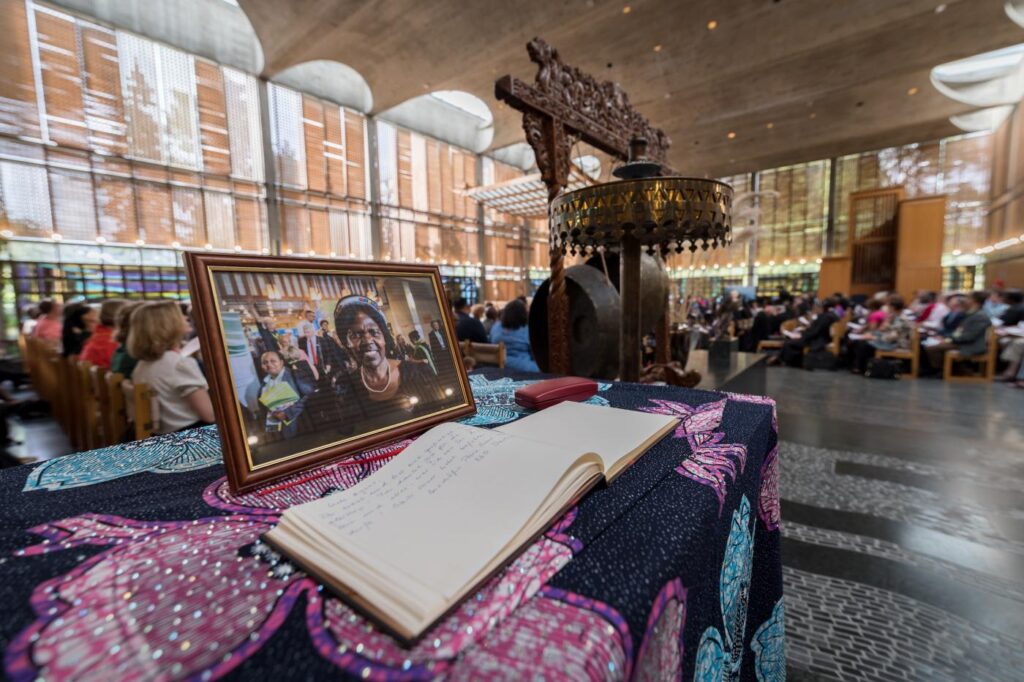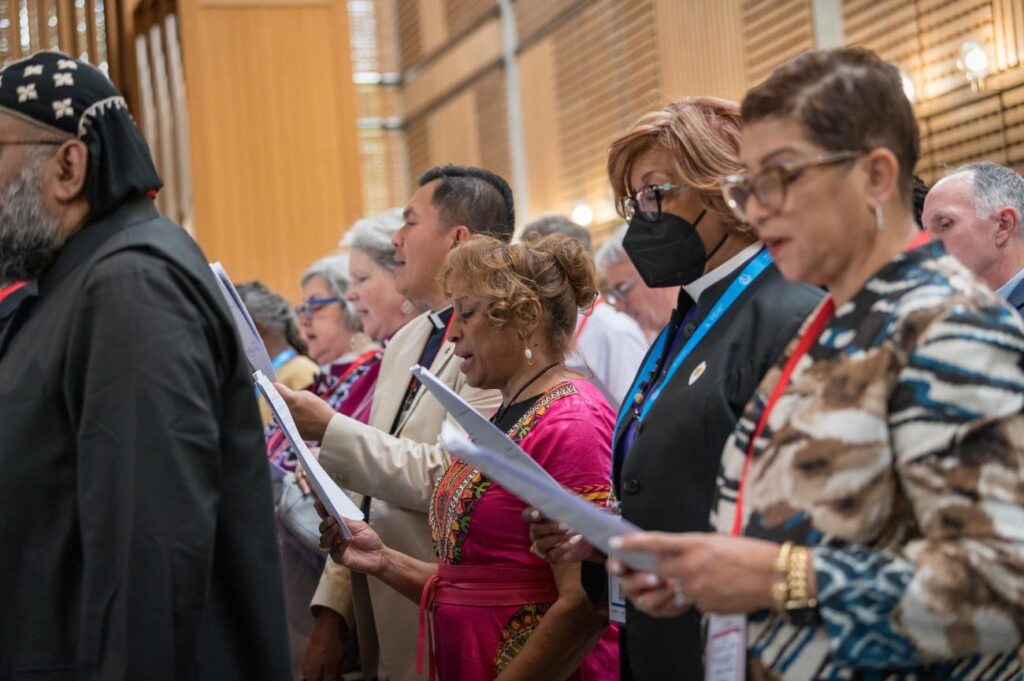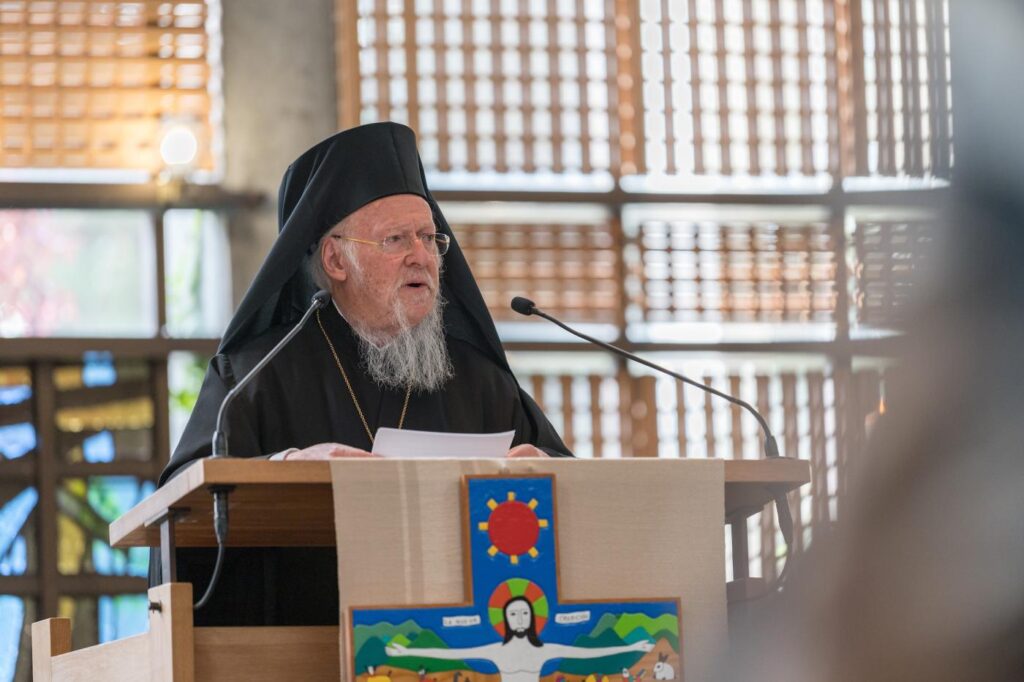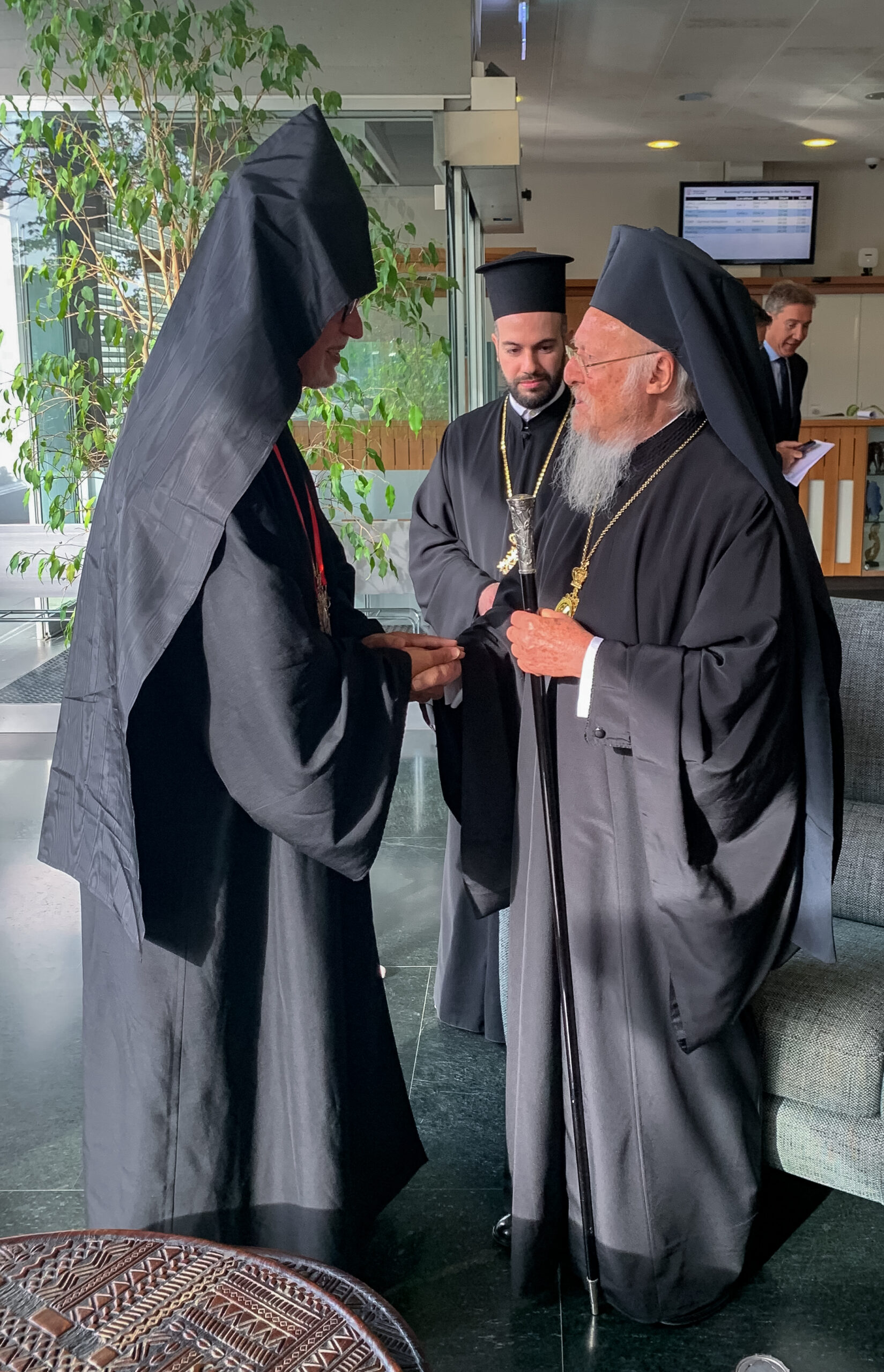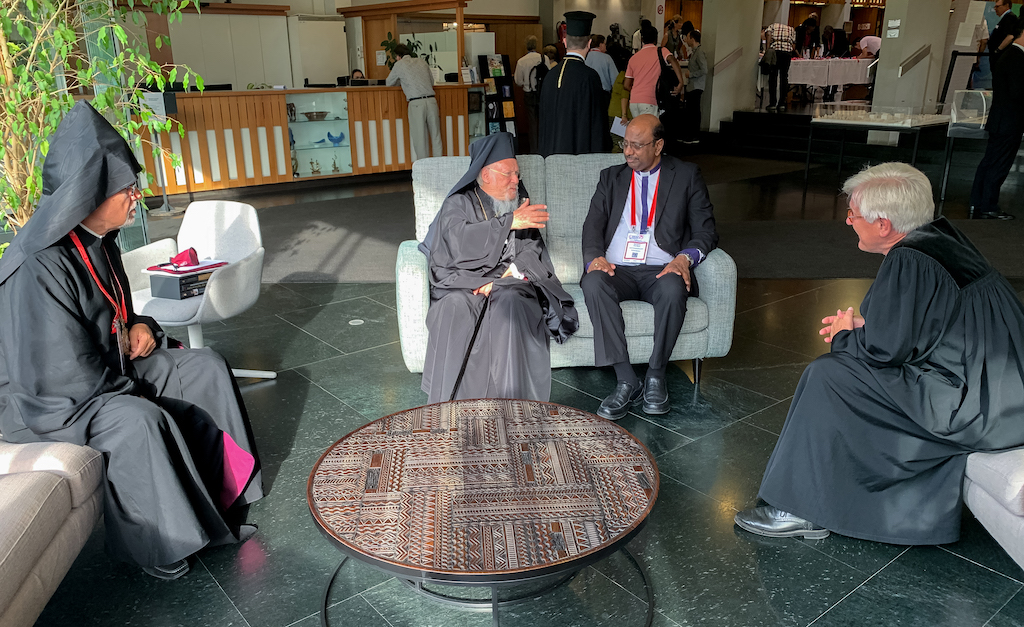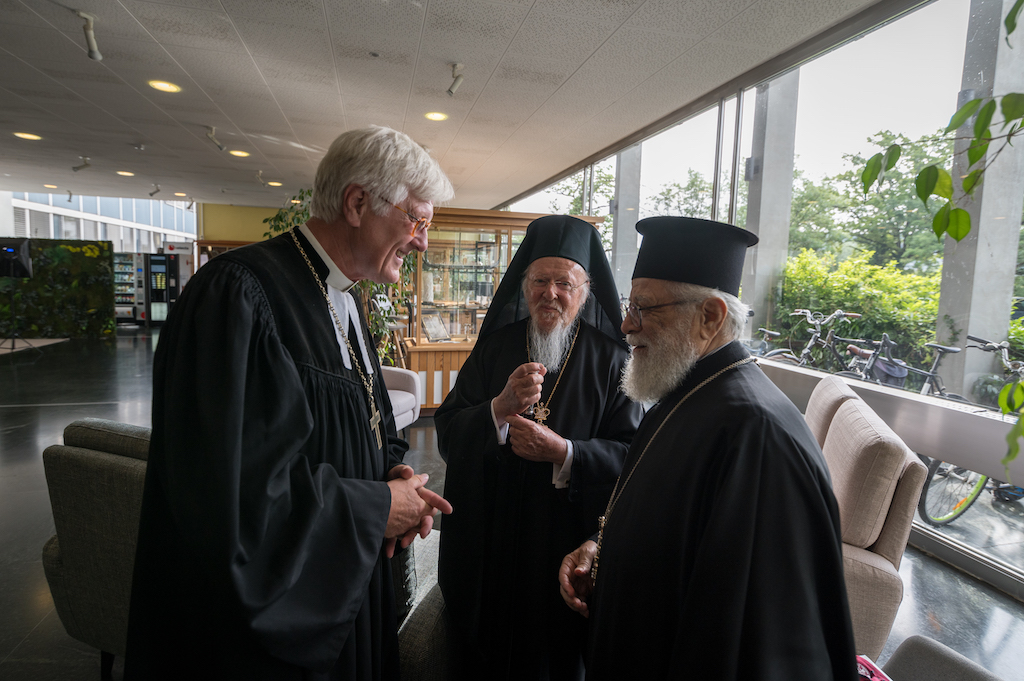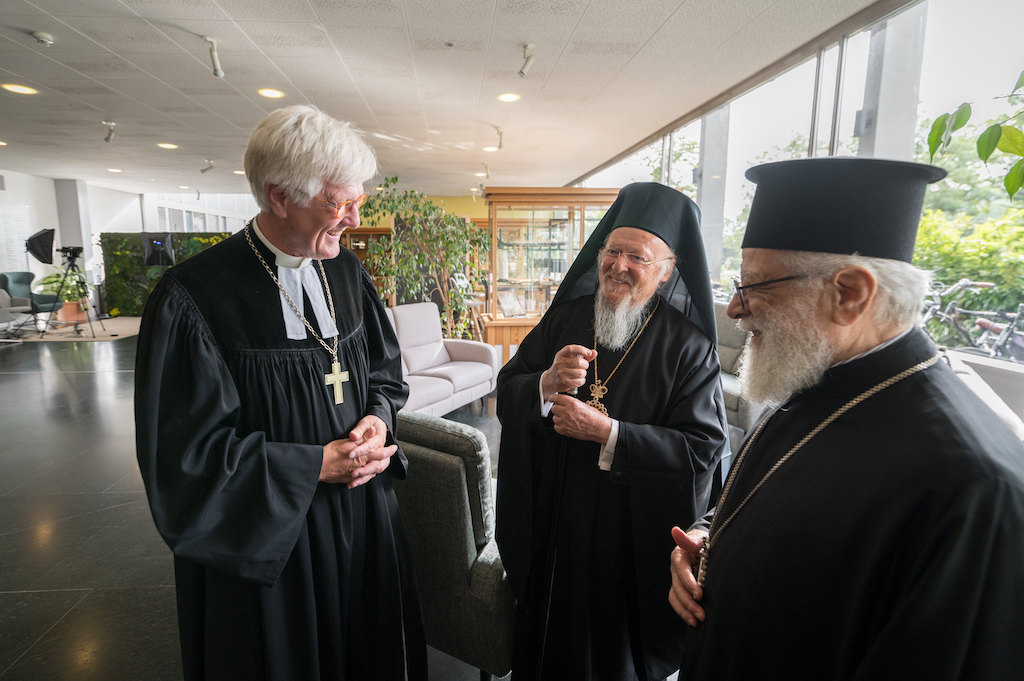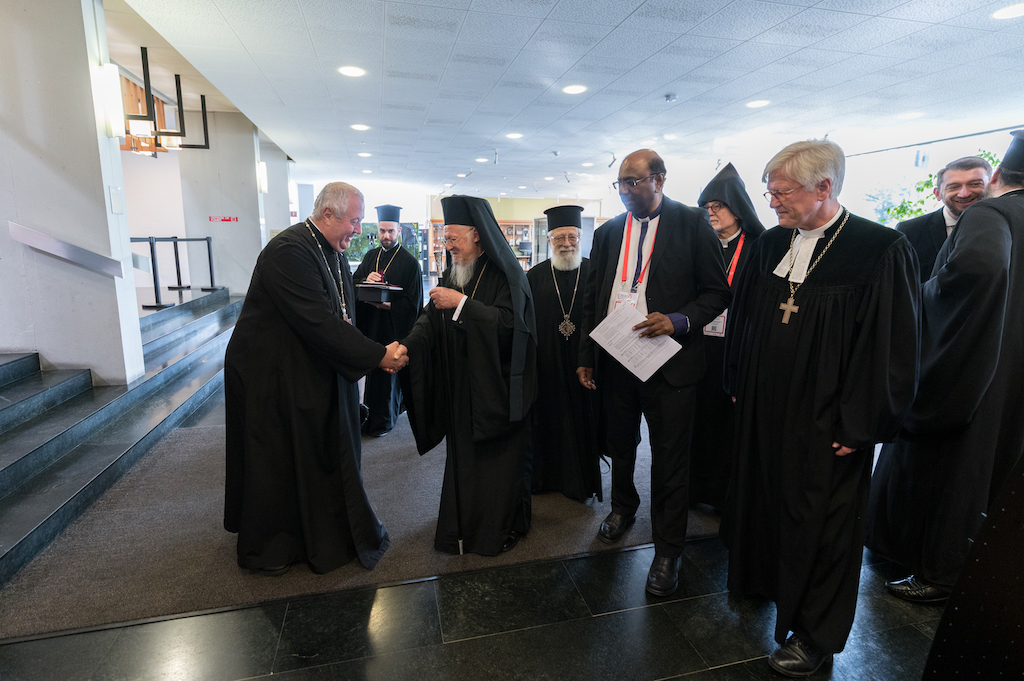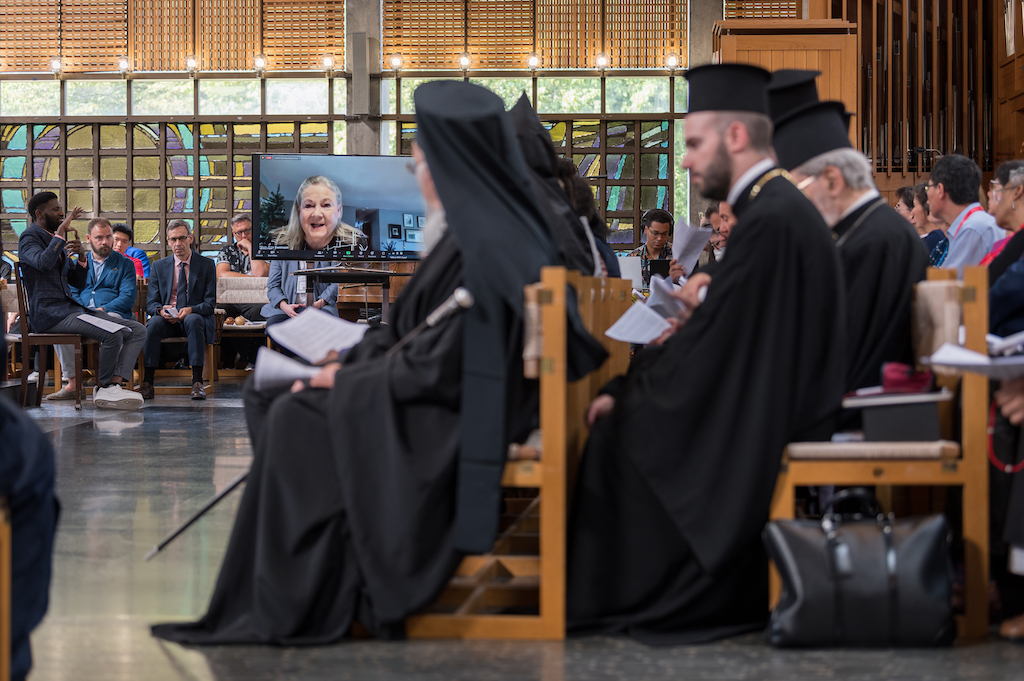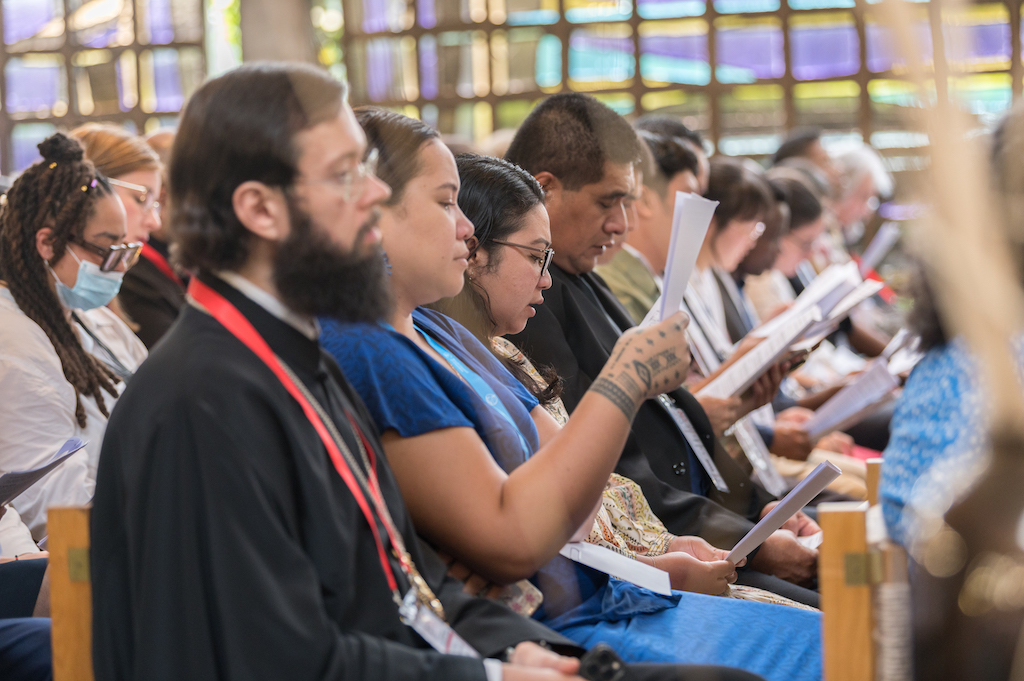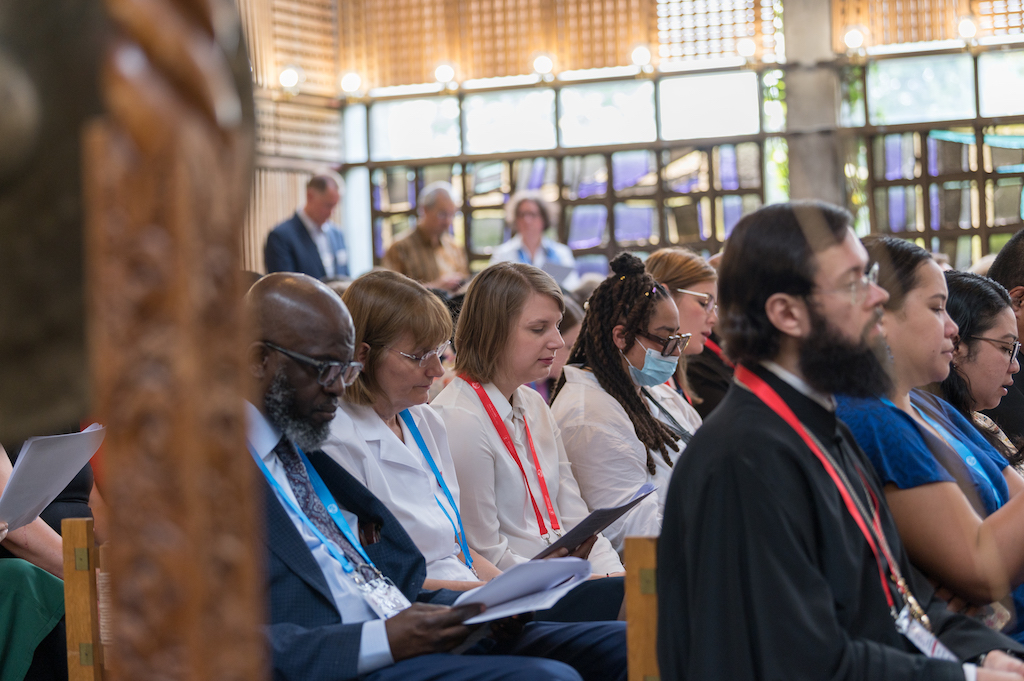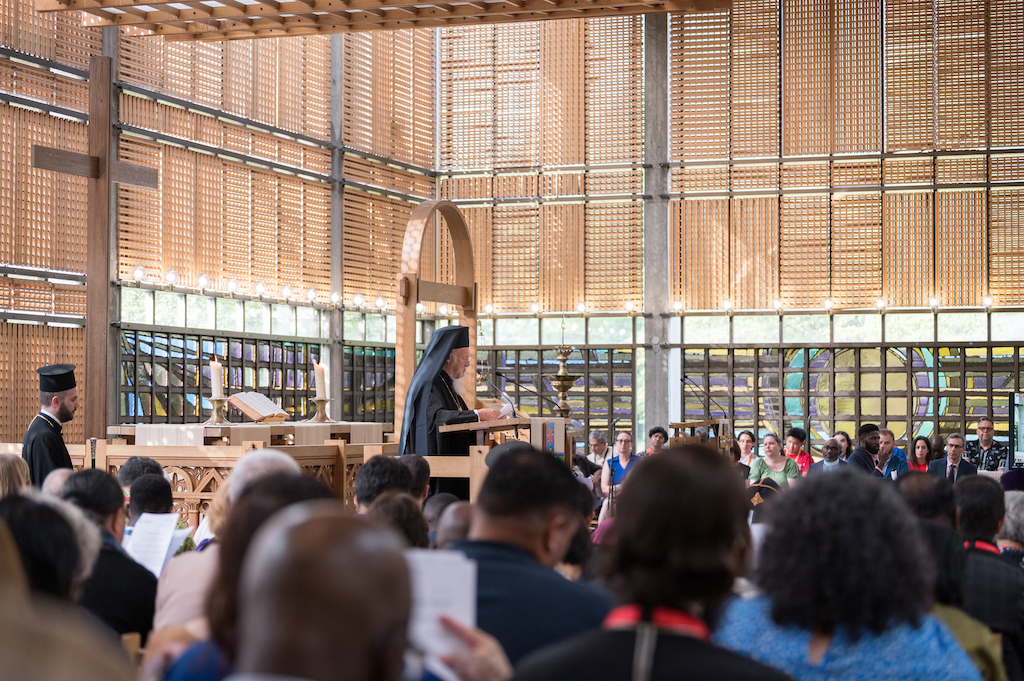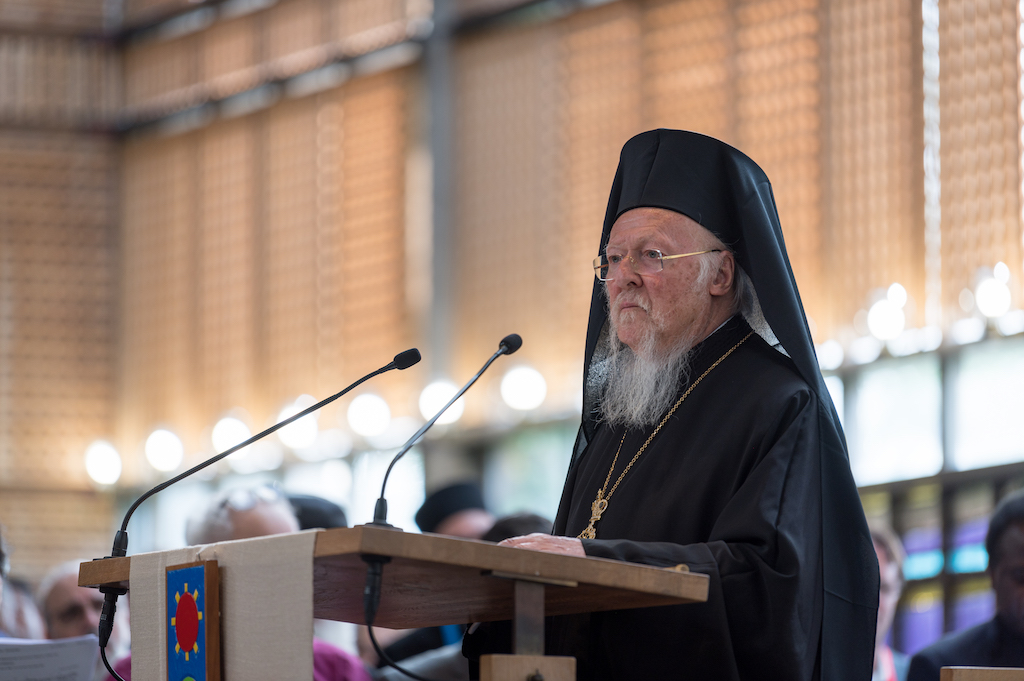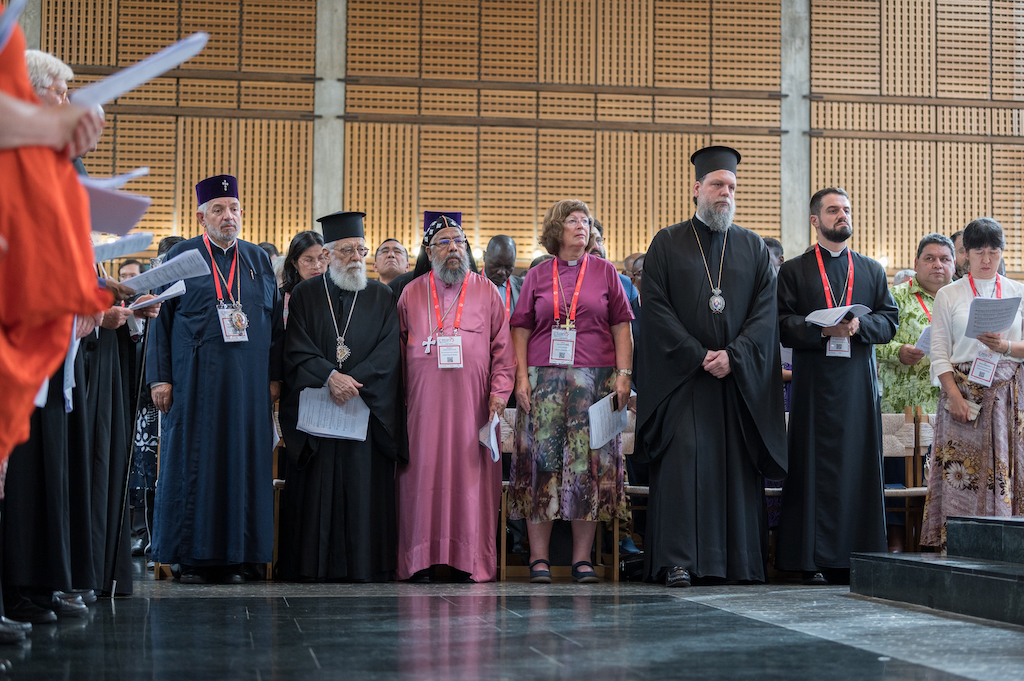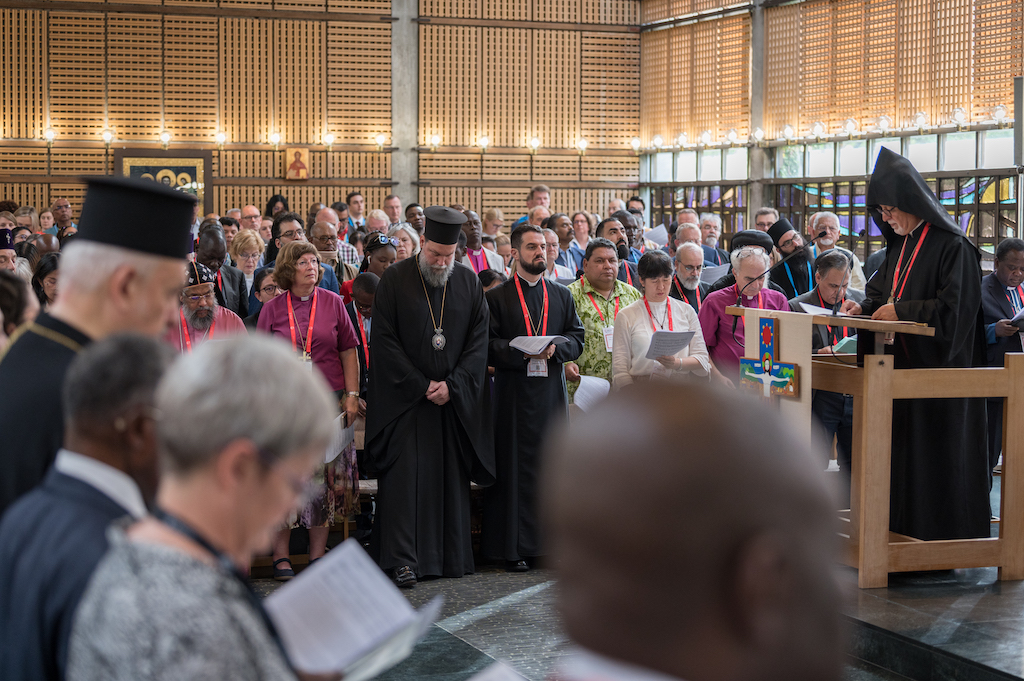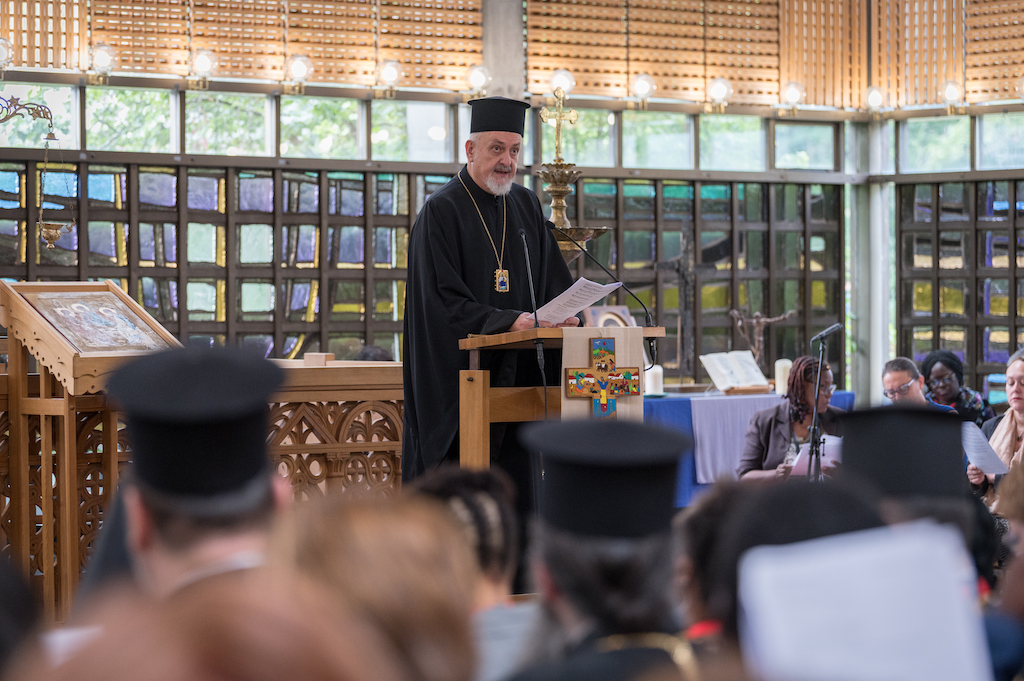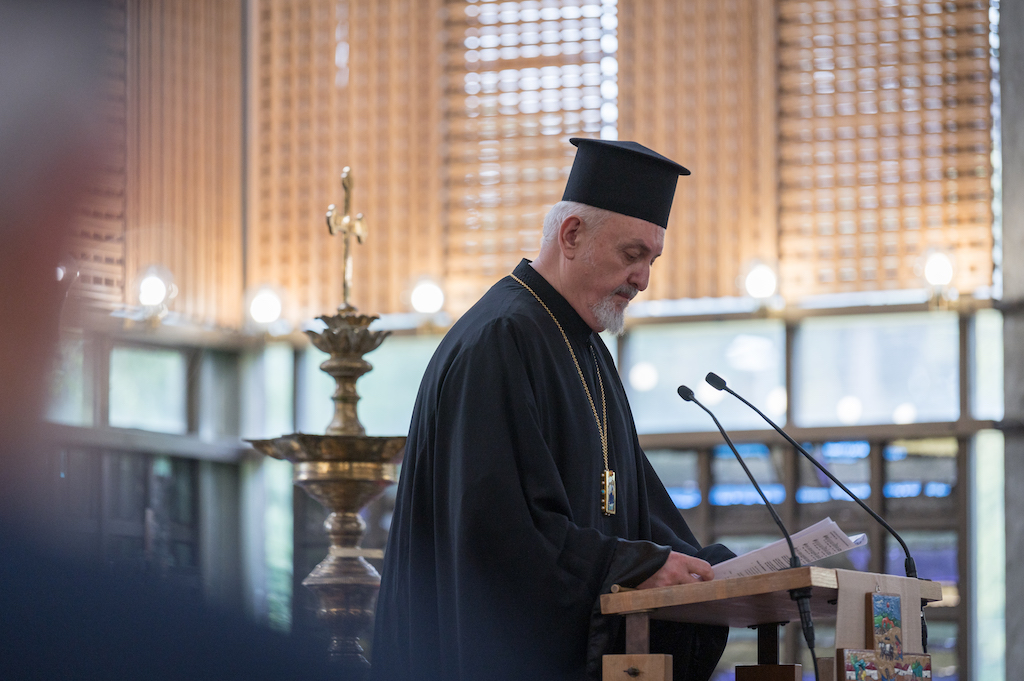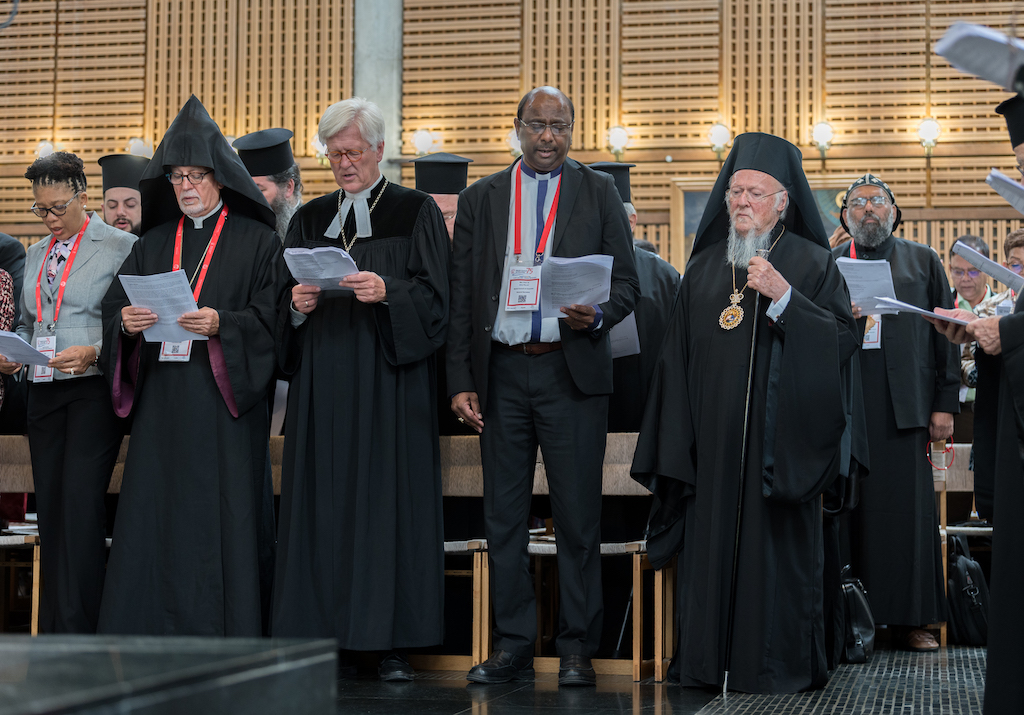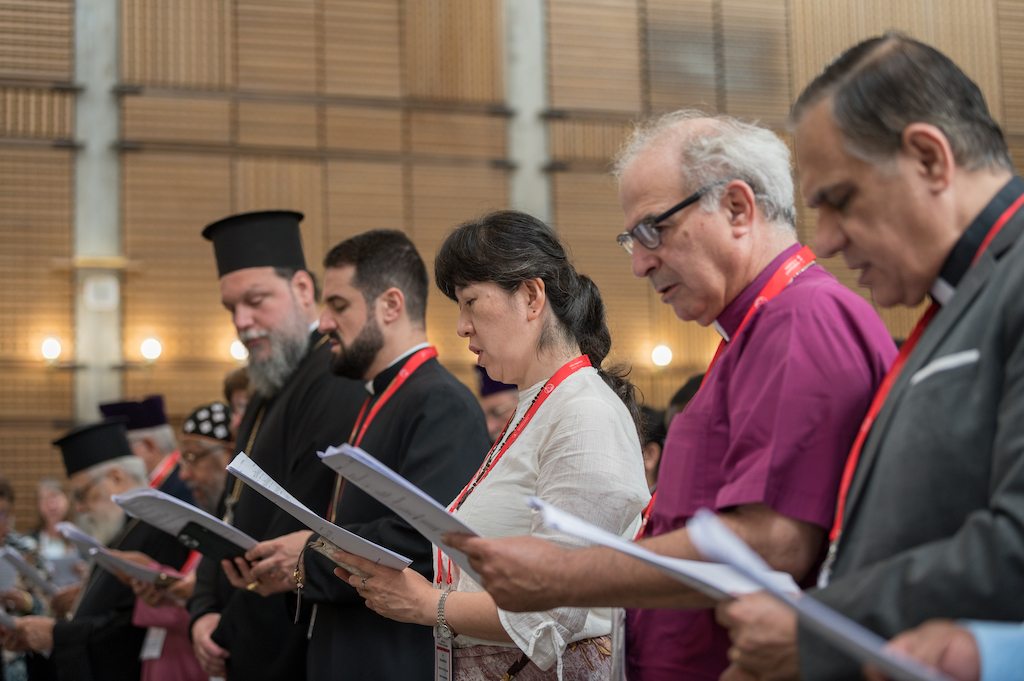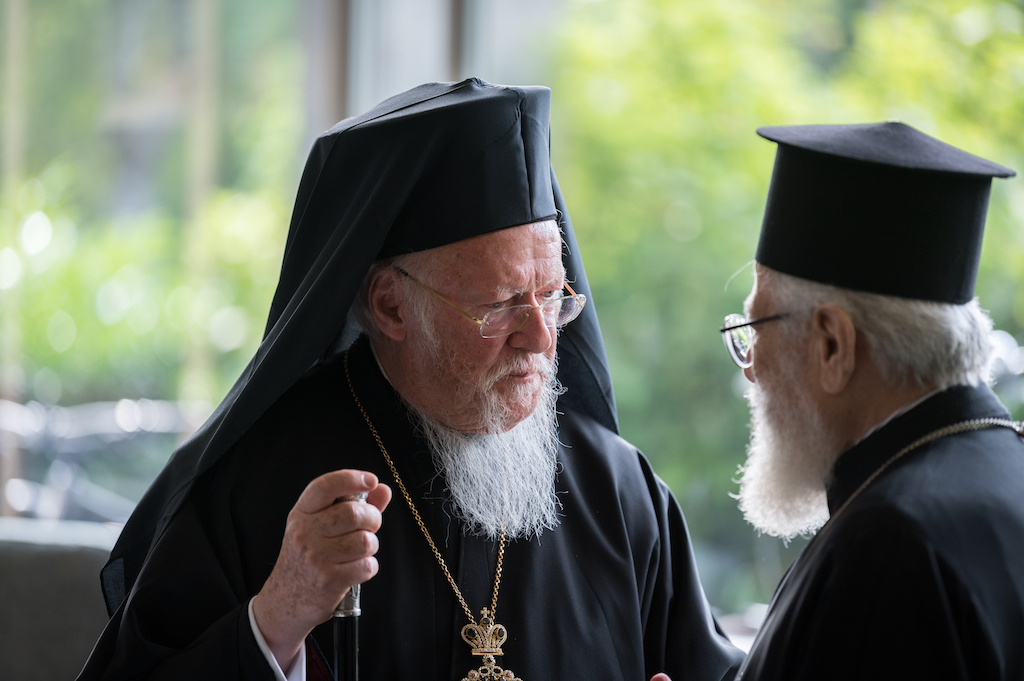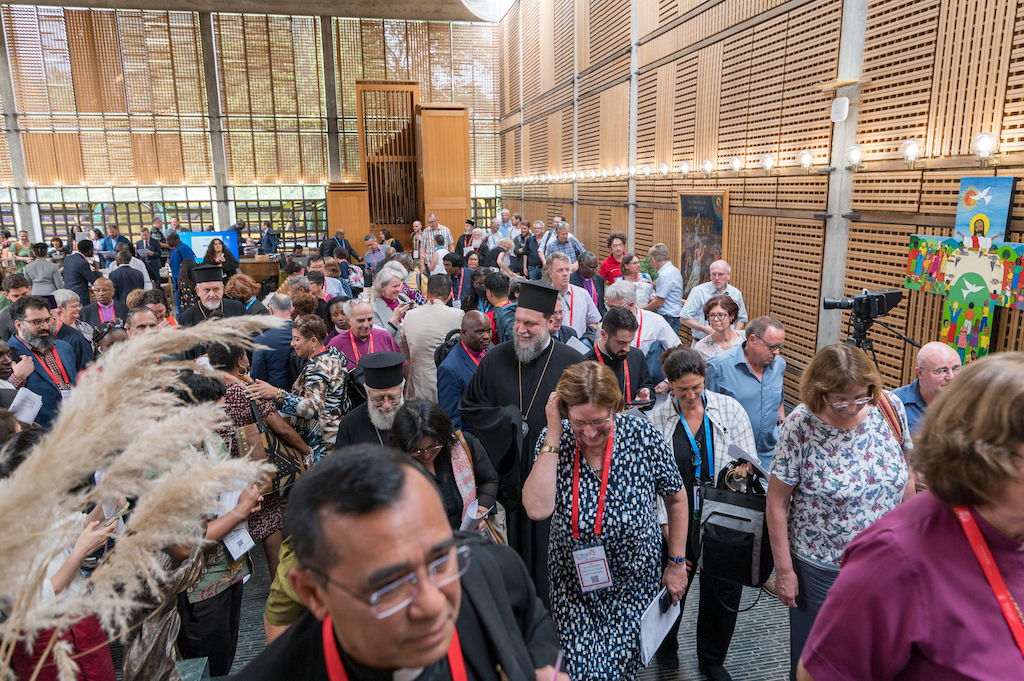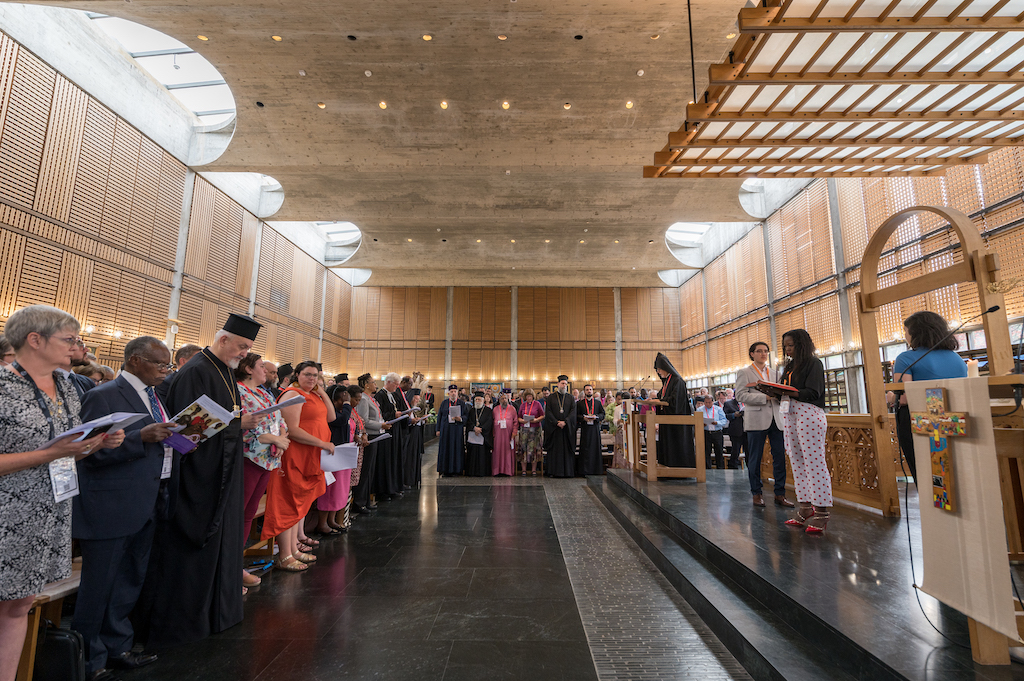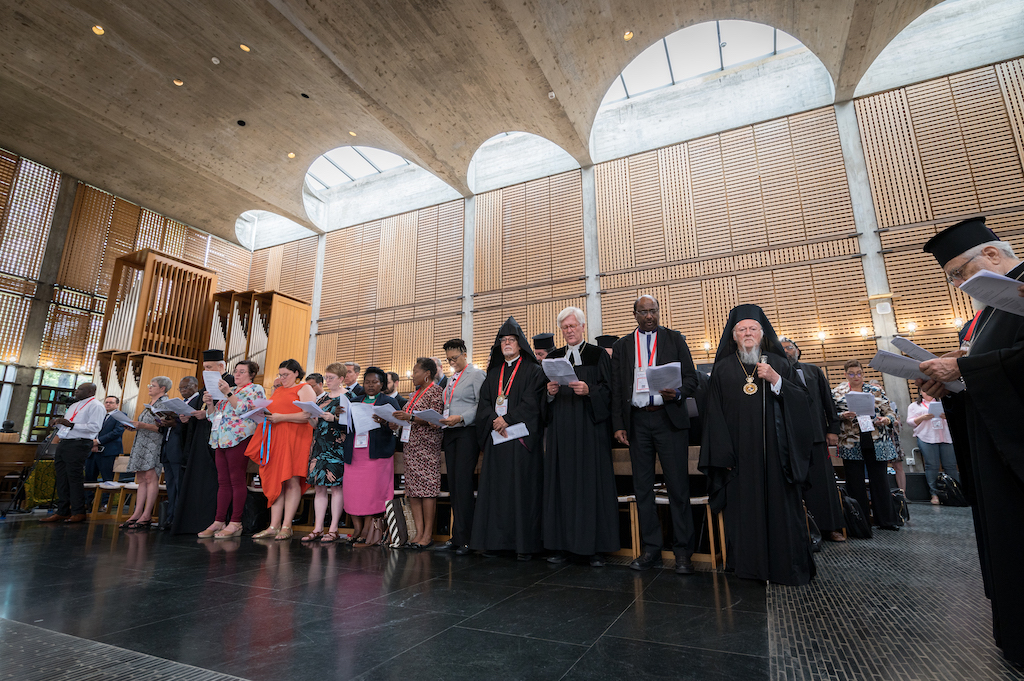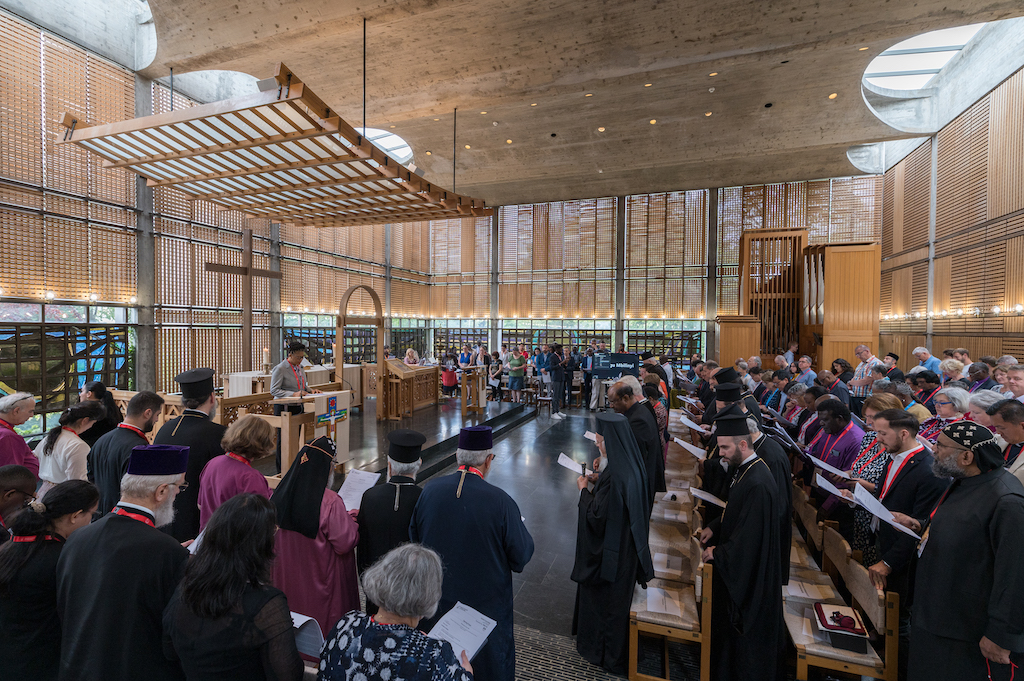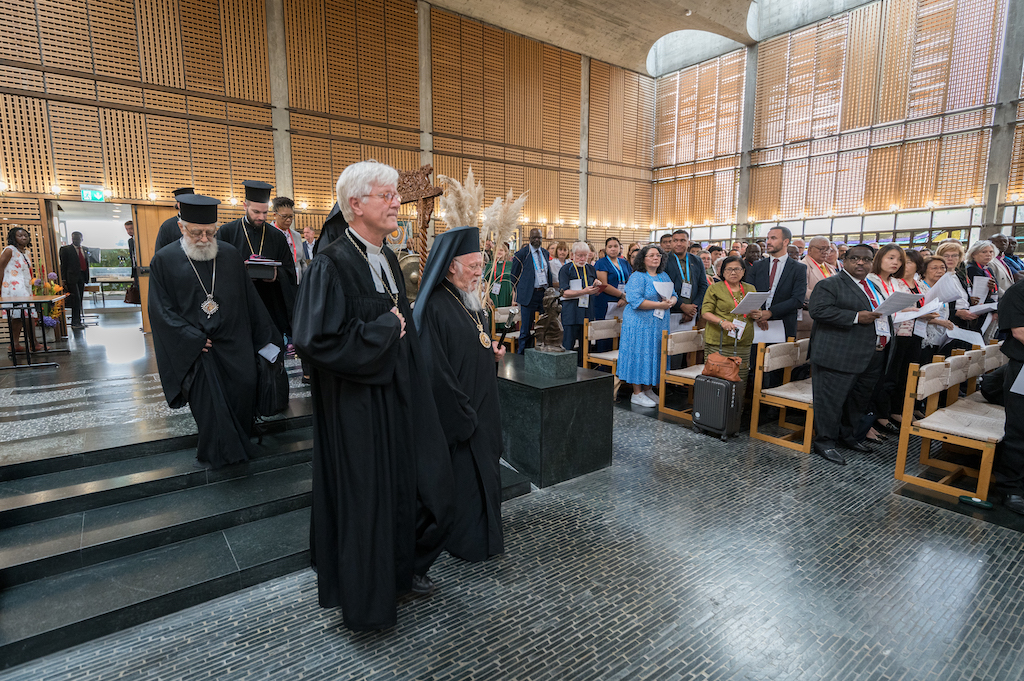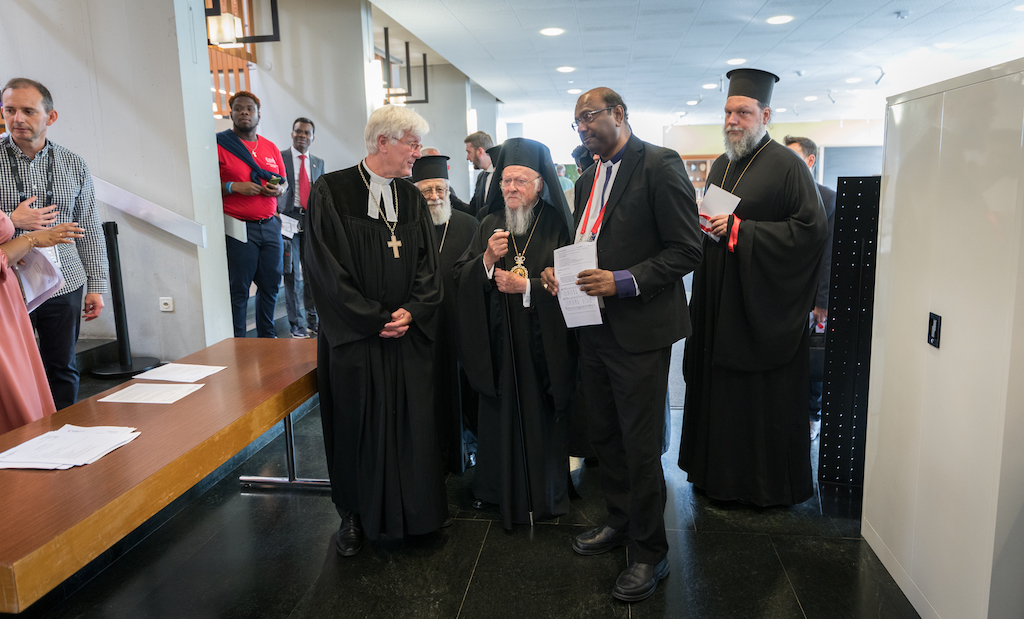“Once again, we gather as the World Council of Churches to pursue and actively seek our unity in Christ – in mind, in heart, in spirit, and in practical reality. In this reality, where division is sown daily in the human family, our task is all the more urgent,” Ecumenical Patriarch Bartholomew said in his sermon.
“The Church of Constantinople shares also the joy of the 75th anniversary of the establishment of the World Council of Churches, as one of its founding members,” he continued.
Ecumenical Patriarch Bartholomew recalled how in 1920 the Ecumenical Patriarchate issued an encyclical addressed “Unto the Churches of Christ everywhere.”
This served as what the he described as a “constitutional charter” for the process that led to the WCC’s foundation in 1948.
The chapel of the Ecumenical Centre in Geneva, where the WCC has its offices, was filled for the opening prayer, which had hymns, readings, and prayers in Armenian, English, French, German, Spanish, and Swahili.
The WCC central committee usually meets every two years and serves as the chief governing body of the WCC between assemblies.
This year’s meeting is the first since the central committee was elected at the WCC’s 11th Assembly in Karlsruhe, Germany, in 2022.
Central committee members remembered in prayer the wisdom, knowledge, gifts, and commitment to unity of those active in the ecumenical movement who had died since the previous central committee meeting in 2022.
Special tributes were offered to Canon Dr Agnes Abuom, of the Anglican Church of Kenya, who died of acute heart failure on 31 May, having served as moderator of the WCC central committee from 2013 to 2022.
In his sermon, Ecumenical Patriarch Bartholomew described how Christians are called to be disciples and followers of Christ, and members of his body, the Church.
“We all may have different perceptions about what, where, and how the Church is constituted, but there can be no doubt about the sign of a true disciple,” he continued. “Only love for each other, and our love for an unloved world manifests our worthiness to bear the name ‘Christian.’”
Ecumenical Patriarch Bartholomew referred during his sermon to the Russian invasion of Ukraine in 2022 which had created a “deep wound” in world Orthodoxy and had profoundly injured the “Orthodox Christian dedication to our own essential oneness.”
He thanked the WCC for standing “in the court of the Prince of Peace,” and for the support it had given to Ukraine and its people. He said all should pray for a “swift and righteous” conclusion to the war.
He also called for recommitment to unselfish and empathetic love for one another and for eight billion fellow human beings in the world.
“It is the ultimate ecumenical expression, because without such love, our inter-Christian witness will never be taken seriously by the world, or, perhaps, even by our own communities,” said Patriarch Bartholomew.
“Let this love be the ‘work’ . . . the chief and principal labour of all our cooperative efforts. After two thousand long, complex, and complicated years, the churches cannot hide from the world. And after seventy five brief years, neither can the World Council of Churches.”
Hymns and prayers during the service were drawn from the spiritual life resources of the WCC 6th Assembly, held 40 years ago in 1983 in Vancouver, Canada.
The prayer concluded with the hymn “Jesus, where can we find you, in our world today?” with words and music composed by Doreen Potter (1925-1980), who was married to Philip Potter, WCC general secretary from 1972 to 1984.
